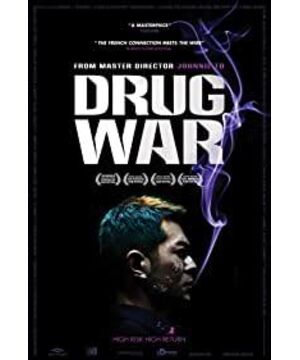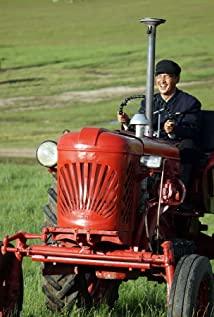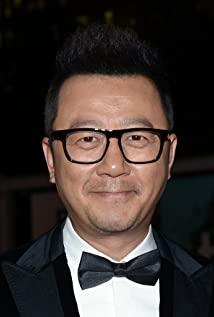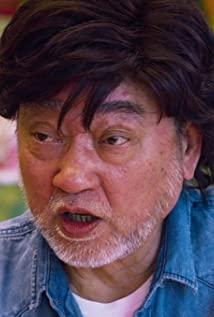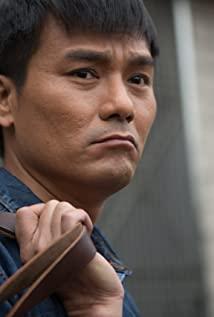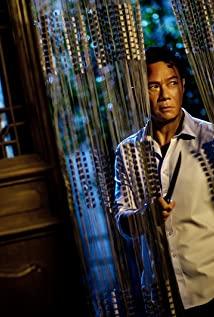When "Lan Yu" first came out, many people thought it was weird. The foreign Guan Jinpeng was filming the most familiar place for the audience. Looking at the most familiar Beijing, acting like this story, some people feel awkward.
Distance produces beauty, but this is the way Lao Du chose this time, rough and direct. In terms of visual atmosphere, I think this film is more like "The Big Event".
It is most obvious during the day. Compared with Lao Du's shooting of the daytime scenes, "Exile" also opens during the day, and there are many daytime scenes, but the freehand flavor is there. Although "Underworld" is known as "literary", it has a lot of poses and a comfortable rhythm. "The Big Event" and "Death Gold" all use line drawing techniques, and so does "Drug War". The scene was taken in Tianjin. Once daylight came, it was an impression of a lifeless environment, but it could only be said to be realistic, without any ugliness. Plus it's too familiar, no matter how uncomfortable it is. Seeing that the environment in Lao Du's lens was changed to the mainland, the mainland audience suddenly felt cheap.
But there are some differences.
One is that at night, as soon as you leave the natural light, the picture immediately comes alive, not only the Galaxy is proficient in manipulating the indoor scene and the cramped space. But at night, Lao Du may have the consciousness of "seeing what should be seen, but not seeing what should not be seen" (see "Judo Dragon and Tiger List" Highlights), it is really hard to change his nature.
So the Hong Kong people may look fresher than the mainland audience. That's for sure.
Secondly, in terms of the action rhythm, several action scenes in "Drug War" emphasized "chaos", which is still rare in the galaxy scenes in recent years. The characteristics of "Exiled" and "True Hero" are all-round, no matter how chaotic the scene is, all angles are unobstructed. "Underworld" is a comfortable pose, and "Gunfire" is a formal pose. The "chaos" in "Drug War" is basically for the service of the outbreak of the plot. It is different from the feeling of powerlessness in the cold pose of "Very Suddenly". The camera is very close, in the car, next to people, subjective perspectives are many, and the shot will be shaken. It is a kind of "body in it". The danger, the sense of substitution, and the more exciting.
In terms of plot, the stalk of identity reversal has been seen in documentary public security literature, and even in Soviet spy novels. It should be said that both "Drug War" and "Mission Impossible 4" are based on reality. (Wei Sheng is always shot...)
The scene of Sun Honglei taking drugs reminds me of a handsome undercover "brother" in Sasu's documentary literature. He confronted a drug dealer with HIGH in Yunnan and almost didn't hang up after taking N mouthfuls. The book "Ten Cases in Beijing" has it.
In terms of characters, many people say that there are too many old-school things, but I think it is very new. The new is in a simple structure, the subtraction is well done, and there are a lot of conscious changes.
For example, what Sun Honglei and Huang Yi did in the play was the usual tacit understanding between the two of them, so they didn't make a fuss about it.
When Gu Tianle drank Maotai to sacrifice to the sky, this man was really scared to death. He was panicked all day before thinking of his family, but when he thought of it, it was very painful, and he had to vent it in front of everyone. (Some people say that this is acting, with Bo's sympathy.)
Both the police and the bandits are regarded as cherishing the ink like gold, and there are fewer dramas, but the people are more three-dimensional. The details of Sun Honglei's work and the treatment of colleagues are very precise.
The fate of a few more gold panning cups in the old port is simply a wake-up call for all Hong Kong people. It's just that there are a lot of dramas.
Of course, the most exciting thing is the climax and ending, otherwise it would not be the Milky Way.
I took a lot of risks in front of this scene and shot many seemingly insignificant details in order to write about drug trafficking insurance and anti-drug insurance. The last distinctive climax is a lot higher than the conventional documentary. The climax of anti-drug "documentary literature" generally comes in three forms: the undercover identity is exposed, or they all die together or retreat; the police succeeds, the protagonist of the police and robbers fight in the round up; the bandits take their own fruits (suicide, especially death by ingesting drugs) . But the drug war is not at all.
"Drug War" has done so much before, and when it comes to its climax, it will serve one thing: "Drug dealers are most afraid of death, and drug police are the most persistent." Wei Sheng also said that he wanted to photograph the difference in criminal mentality under the death penalty environment. So even though they used all old stalks, they also brought a lot of private goods to the old port. But in the end, we must use the most aggressive means to do this. "The Disciple" is so transparent, the daoists are miserable, the undercover is daring, the local drug dealers are ruined, and every level of fear is covered. But the drug war was even more sharp and bloody. In the final scene, all the other symbols on the police and bandits were stripped off, and they talked about chasing and fleeing, life and death. Lao Du said that in order to abide by the rules, the mainland police and criminals must be black and white, and he made a set of extreme things.
In this way, this ending is the most suitable. People are dead when they die, and when they die is the end, they deserve to be afraid.
"But, what about death?"
Punctuality, so many high-end blacks in front, in fact, are not as good as this end. People who commit Fa-rectification have always been required by the mainland to give him the ending form. This time he didn't counter the rules. Instead, he used this rule-compliant but abrupt ending to ask questions.
"What problem can the death penalty solve?"
"Death is too easy, isn't it?" It is
estimated that Lao Du wanted to ask this question during the trial filming of the death penalty in "Peace is Yours".
View more about Drug War reviews


